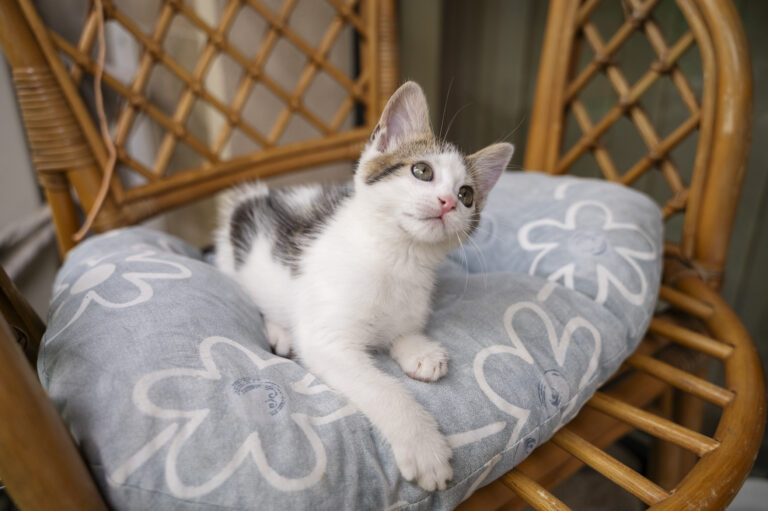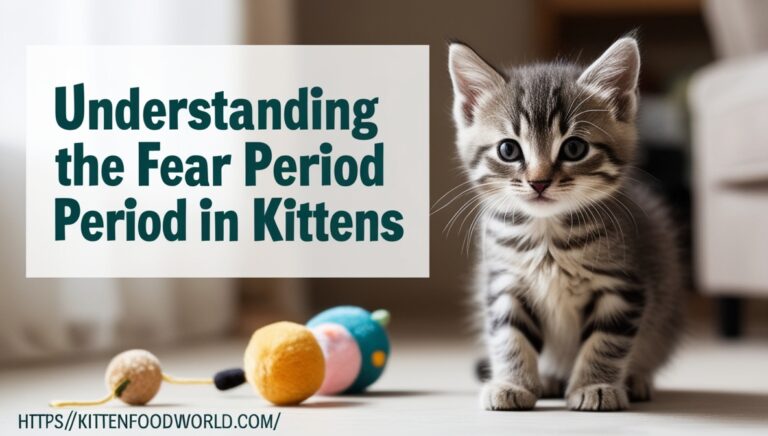Cat Weight Scale: A Comprehensive Guide for Monitoring Your Cat’s Health
Table of Contents
Monitoring your cat’s weight is essential to maintaining their overall health, especially as they grow and age. A cat weight scale is a valuable tool that helps you track weight changes accurately, ensuring that your cat stays within a healthy range.
In this article, we’ll cover everything you need to know about using a weight scale, why it’s important, and tips for choosing the right one for your feline friend. From understanding the benefits to practical usage tips, let’s dive into this essential guide to keeping your cat healthy.
Why Monitoring Cat Weight is Important

Obesity and weight-related issues are common health concerns for cats. According to studies, overweight cats are at risk of developing several health issues, including diabetes, joint problems, and heart disease. However, being underweight can also signal underlying health conditions.
Regularly tracking your cat’s weight with a weight scale allows you to identify changes early and take action as needed.
Benefits of Using a Cat Weight Scale

Using a weight scale offers many benefits:
- Accurate Tracking: Unlike estimating by sight, a scale provides precise measurements, helping you detect even minor weight changes.
- Early Health Detection: Weight fluctuations can be an early indicator of illness, making routine weighing essential.
- Better Diet Management: A weight scale helps monitor the effectiveness of dietary adjustments, ensuring your cat maintains a healthy weight.
With these benefits in mind, a weight scale is an investment that can significantly contribute to your pet’s long-term health.
Choosing the Right Cat Weight Scale

Selecting the right weight scale can be overwhelming with the many options available. Here’s a breakdown of the factors to consider:
1. Scale Type: Digital vs. Analog
- Digital Scales: Digital scales provide accurate, easy-to-read measurements, often with features like memory storage and weight tracking. These are ideal for pet owners who want a quick and precise way to measure their cat’s weight.
- Analog Scales: Analog scales are generally more affordable and don’t rely on batteries. However, they may lack precision and are harder to read than digital options.
2. Weight Capacity
Make sure the weight scale you choose can support your cat’s weight. While most scales can handle the weight of an average cat, larger breeds, like Maine Coons, may require a scale with a higher weight capacity.
3. Ease of Use
Look for a weight scale that is easy to use, especially if you plan to weigh your cat frequently. Features like non-slip surfaces, easy-to-read screens, and quick response times enhance the weighing experience.
4. Additional Features
Some advanced scales come with extra features, such as:
- Memory Function: Stores previous measurements, allowing you to track weight changes over time.
- Tare Function: Useful for weighing smaller animals or objects by resetting the scale to zero, making it versatile.
Portability: Lightweight and compact designs are convenient if you need to move the scale around.
How to Use a Cat Weight Scale Properly

Using a weight scale correctly ensures accurate readings. Here are some tips for getting the best results:
1. Prepare the Scale and Environment
Set the scale on a flat, stable surface to prevent wobbling. If your cat is wary of the scale, place it in a quiet area with minimal distractions.
2. Introduce Your Cat to the Scale
Allow your cat to get familiar with the scale by letting them sniff and explore it without weighing them immediately. Use treats or praise to make them comfortable.
3. Weigh at Consistent Times
For the most reliable data, weigh your cat at the same time of day and under similar conditions each time. Ideally, weigh them before feeding to avoid food-related weight fluctuations.
4. Record the Weight
Keep a log of your cat’s weight to track any gradual changes over time. This can be done manually or by using a digital scale with memory storage.
Recommended Cat Weight Scales on the Market

Here are some top-rated weight scales to consider, each known for quality, accuracy, and ease of use:
- Redmon Pet Scale: Known for its digital accuracy and ease of use, with a large platform suitable for cats.
- W.C. Redmon Precision Digital Pet Scales: Offers precise readings, memory storage, and a sturdy design.
- Greater Goods Smart Baby Scale: Although designed for infants, this scale is perfect for cats, offering high precision and an app that records weight trends.
- Kitchen Digital Scale with Tare Function: For smaller cats, a kitchen scale with a large weighing surface can also work well, especially for monitoring small weight changes.
Tips for Encouraging Weight Loss or Gain

If your cat is underweight or overweight, here’s how a weight scale can help in managing their diet and exercise routine:
Weight Loss Tips
- Portion Control: Use the scale to monitor progress and adjust food portions accordingly.
- Scheduled Feeding: Avoid free feeding and establish a feeding schedule to control calorie intake.
- Increased Activity: Engage your cat in regular play sessions with toys that encourage movement.
Weight Gain Tips
- High-Calorie Diet: Consult your vet for high-calorie food options if your cat needs to gain weight.
- Frequent Monitoring: Use the scale to check for gradual weight increase, which is ideal for health.
- Reduced Stress: Stress can lead to weight loss in cats, so maintaining a calm environment is essential.
Common Mistakes When Using a Cat Weight Scale

Avoid these pitfalls for the most accurate weight tracking:
- Inconsistent Weighing Times: Weighing your cat at different times of the day can lead to inaccurate results. Stick to a consistent schedule.
- Ignoring Small Fluctuations: Small changes are normal, but significant shifts in weight should be monitored closely.
- Not Consulting a Vet: A weight scale is a great tool, but it’s not a substitute for professional veterinary advice. Consult your vet for guidance if you notice unusual weight changes.
How Often Should You Weigh Your Cat?

For healthy cats, weighing once a month is generally sufficient. For those on a weight management plan or dealing with health issues, more frequent weigh-ins (e.g., every two weeks) are recommended. Regular use of a weight scale helps detect health problems early and keeps your cat on track with weight goals.
Conclusion: The Value of a Weight Scale in Pet Health

A weight scale is an invaluable tool for any pet owner committed to their cat’s health. With regular monitoring, you can catch early signs of health issues, manage weight-related problems, and help your cat live a long, healthy life.
Investing in a good quality scale and using it properly makes a significant difference in managing your cat’s well-being. Whether you’re tracking weight loss, gain, or maintenance, a weight scale provides the precision and consistency needed to stay informed.
Pair it with regular vet check-ups, a balanced diet, and plenty of play, and your cat will be on the path to a happy, healthy life.
FAQs

What is a cat weight scale?
A weight scale is a specialized device designed to measure the weight of cats. It is commonly used by pet owners, veterinarians, and breeders to monitor a cat’s weight and ensure they maintain a healthy size.
Why is monitoring my cat’s weight important?
Monitoring your cat’s weight helps track their health. Significant weight changes can indicate underlying health issues such as obesity, diabetes, or thyroid problems.
Can I use a regular human scale to weigh my cat?
While you can use a human scale by holding your cat and subtracting your own weight, it is less accurate. A cat-specific scale provides precise measurements.
How does a weight scale work?
Weight scales are designed with a sensitive platform to measure even slight weight changes. Many models also include a hold function to stabilize readings when the cat moves.
What are the types of weight scales for Cats?
The main types are digital cat scales, mechanical cat scales, and multi-purpose pet scales. Digital scales are more accurate and often preferred for their ease of use.
How often should I weigh my cat?
Weighing your cat once a month is sufficient for healthy cats. For kittens or cats with health concerns, weekly weigh-ins might be necessary.
What is a good weight for a cat?
The ideal weight depends on the breed, age, and size of the cat. Domestic cats typically weigh between 8 to 12 pounds, but it’s best to consult your veterinarian for specific guidelines.
How can I help my overweight cat lose weight?
To help your cat lose weight, focus on portion control, feeding a balanced diet, and encouraging exercise through play. Consult your vet for a tailored weight loss plan.
How do I choose the best weight scale for Cats?
Look for features like accuracy, durability, ease of cleaning, and a hold function for stability. Also, consider the size and weight capacity of the scale.
Can I use a baby scale for my cat?
Yes, a baby scale can work for cats if it has an appropriate weight range and a stable platform to accommodate the cat’s movements.
How do I get my cat to stay still on the scale?
To keep your cat calm, try placing a soft towel or their favorite toy on the scale. You can also use treats to encourage them to stay still during weighing.
Are weight scales expensive?
Weight scales vary in price depending on features. Basic models can cost as little as $20, while more advanced ones with additional features might cost $100 or more.
Can I use a food scale for small cats or kittens?
Yes, a food scale can work for kittens or very small cats, as long as it has sufficient weight capacity and is stable.
How accurate are cat weight scales?
Digital cat scales are highly accurate, often providing measurements to the nearest ounce or gram. Accuracy may vary with mechanical scales.
Can I weigh my cat in a carrier?
Yes, weigh the carrier separately first, then weigh your cat in the carrier. Subtract the carrier’s weight to determine your cat’s weight.
Do veterinarians use cat weight scales?
Yes, veterinarians use professional-grade weight scales to monitor pets’ health during check-ups and treatments.
How do I clean my cat weight scale?
Use a damp cloth with mild soap to clean the scale’s surface. Avoid harsh chemicals, and ensure it is completely dry before use.
What weight capacity should a cat weight scale have?
A scale with a capacity of 20-30 pounds is sufficient for most cats. For larger breeds, consider a higher capacity scale.
Can I use a kitchen scale for my cat?
Kitchen scales can be used for small kittens but are not ideal for adult cats due to size and weight limitations.
Where can I buy a weight scale?
Weight scales are available at pet stores, online retailers like Amazon, or specialized veterinary equipment suppliers.







